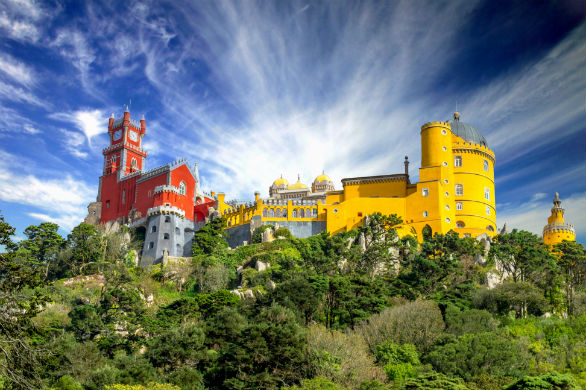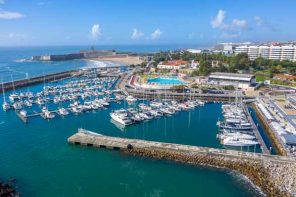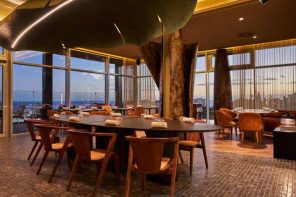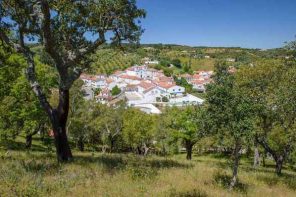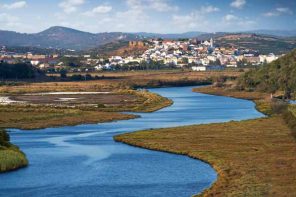FROM NEAR OR FAR, WRITERS HAVE FOUND IN SINTRA THE REALITY OF THE VERY FICTION THEY CREATED. IN PROSE OR VERSE, THEY RECOGNIZED BOTH THE KNOW-HOW AND MAGIC OF SINTRA’S PALACES AND GARDENS, PARKS AND MISTY ROADS, RESTAURANTS AND HOTELS. OF THE AIR YOU BREED AND THE PARADISE YOU BEHOLD.
Today, Sintra is more often celebrated by food writers and travelers in search of creating the perfect tourist guide to the place than by poets and novelists. It’s still about palaces and gardens, parks and stunningly foggy views, restaurants and hotels. And it insists on being a paradise regained at every visit, from the sweet bite of the queijada pastry to the splendors of what Nature decided to bestow upon Sintra.


To most visitors (and strangely enough to many Portuguese) Sintra is the place Lord Byron (1788-1824) decided to sing in his ‘Childe Harold’s Pilgrimage’ by saying ‘Lo! Cintra’s glorious Eden intervenes in variegated maze of mount and glen’, stating also that Sintra is likely to be the most beautiful little village in the world. The sometimes difficult relationship between Portugal and the British Empire, led to a twist of Byron’s words, a rumour running wild that he believed Sintra had a chance of becoming the most extraordinary place in the planet ‘if it wasn’t for the portuguese in it’…


But the point to be made concerns the ‘little village’. What you see in Sintra is not what you get unless you decide to make the most of your own curiosity. Most famous writers (or in the process of becoming household names) insisted on filling the gaps. What palaces and grand houses hide in the luxurious green? What are the treasures along the misty roads and how do you find them if you don’t force yourself to a mandatory stop? The pleasures of the serra, of ‘mount and glen’, where are they when they’re not on plain sight? To all artists, Sintra’s mist is inviting, a game to be played, a walk to be done, a promise of adventure and discovery to come true.
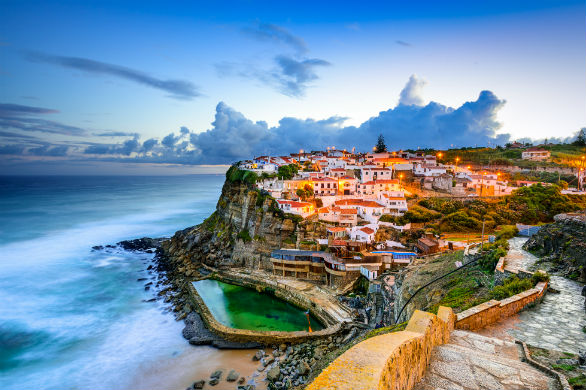
Lord Byron knew that well, from his ‘headquarters’ at Lawrence’s Hotel. So did the diplomat and compulsive traveler William Beckford (1774-1843) and his love for Monserrate and strong friendships. The same with Hans Christian Andersen (1805-1875) that found in Sintra some perfect details to set his stories and fables and took it hard to ‘leave all the beauty of Sintra behind’. Or the great Thomas Bernhard (1931-1989), novelist and playwright, at every visit a regular of the Café Central.
THE WRITER’S GUIDE



